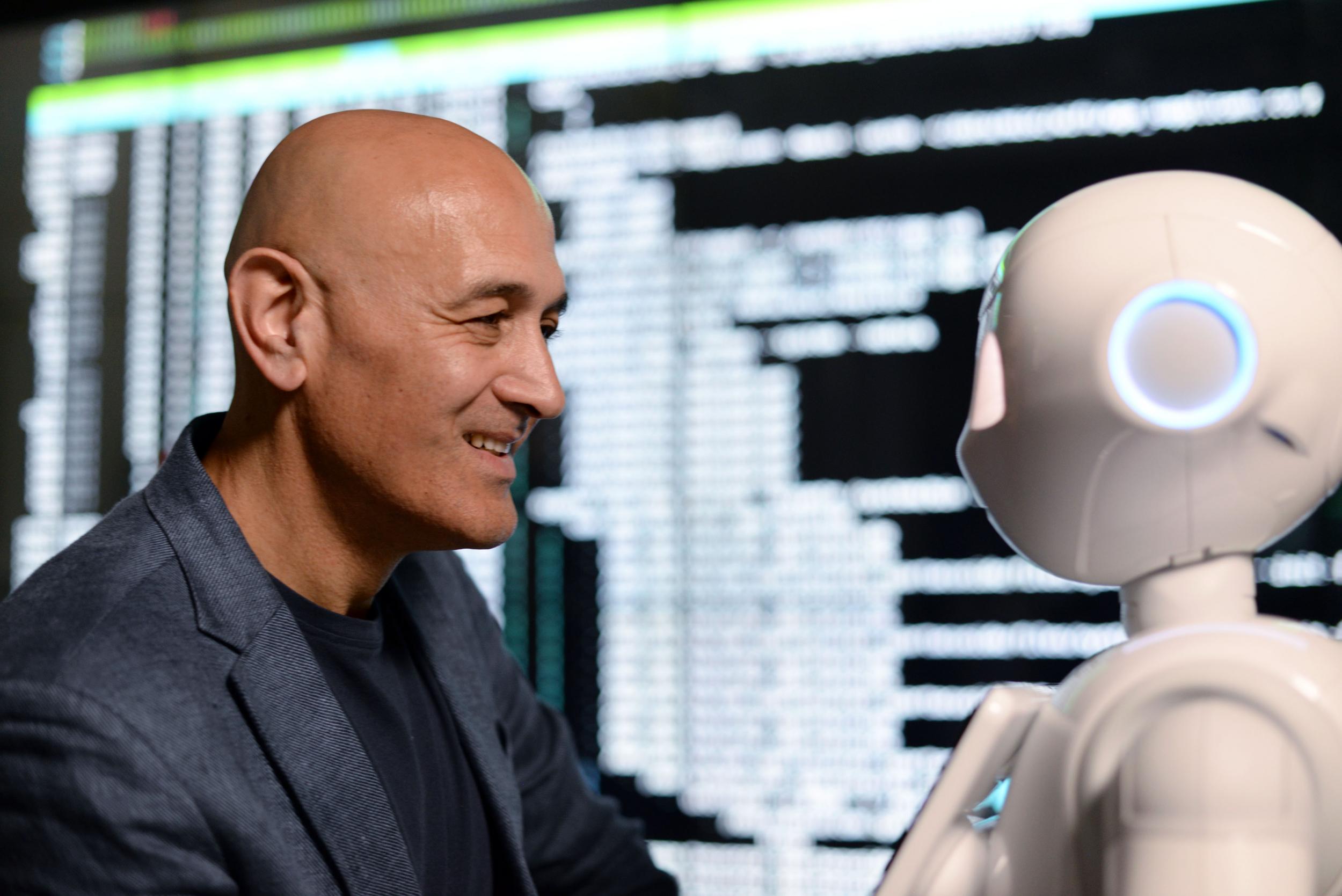TV review, The Joy of AI: A quite engrossing hour of educative viewing
Professor Jim Al-Khalili brought an appropriate sense of wonder and perspective to this documentary on the progress of artificial intelligence

There is a famous Samuel Johnson quotation on the subject of a dog walking on its hind legs: “Yes, it is not done well; but you are surprised to find it done at all”.
For what it’s worth, I reckon that’s where we’re at with artificial intelligence – easy to mock, but placed in any kind of perspective what the machines can do now would have been thought unthinkable even by futurologists not so very long ago. Admittedly, the most impressive aspect of AI that I have personally, consciously encountered is the ability of a smart phone to add bunny rabbit teeth and ears to any given selfie. Alan Turing: your life wasn’t wasted.
Professor Jim Al-Khalili, a ubiquitous presence on BBC Radio 4 and what the French would call a “public intellectual”, brought an appropriate sense of wonder and perspective to The Joy of AI (BBC4) in a quite engrossing hour of educative viewing.
The highlight, and one of the viewing highlights of my year, involved a visit to Heriot-Watt University – words I never thought I’d write. There, our Jim managed to hold a sort of conversation with an AI-equipped robot about his hobbies, ranging widely around science fiction and movies. All went well, but when the talk turned to football... oh dear. Jim, you see, is a Leeds United fan but his new cyber-friend, for some reason given a girlie voice and styled with pretty features, didn’t really know much about the team, though she tried to sound interested. Sadly, she took the cue about the team, but went off on some tangent about the 1970s instead, consistently missing the point, which was to engage in futile speculation about Leeds getting promoted to the Premier League this season. I’ve been on dates like that too (not saying which side of the conversation though).
The problem was that this particular talking machine only had Wikipedia and some news feeds to help her keep her end of the chat up. Thus, he was bound to start sounding a bit dotty or boring before long, though she was able to crack quite a good joke about a restaurant serving breakfast “at any time” (with a punchline about a customer ordering French toast during the French Revolution). Anyway, the wonder of it is that the chatbot was able to do any of this at all with any remote degree of proficiency. You can be sure they will get better at it too, just like your friend Siri.
Really, the key to artificial intelligence is continued in the expression “machine learning”. What it means is that, just like an infant human learning how to read or make music, the computer itself crates its own rules and conventions by trial and error. So AI is not so much about telling the machines some rules and letting it get on with it, but more about letting it acquire knowledge via trial and error – hence their now formidable ability to play chess or Atari games far better than humans. There is a sense in which they intuit things though this process, a more human sort of quality.
Or is it? At one point Professor Jim fell into the old human-centric trap of dredging up the fears so memorably raised in Stanley Kubrick’s 2001: A Space Odyssey half a century ago (and one film tactfully not mentioned by Jim to the chatbot over coffee – don’t want her/it getting any funny ideas). Although you couldn’t rule anything out these days, you can’t help feeling that if AI is about learning to get things right, then they can’t replicate human beings because we’re so good at getting things wrong – Brexit, Celebrity Big Brother, Chris Evans. Machines, even AI ones, lack our ability to judge and are nowhere near as athletic as most of us are. An AI footie team is never going to beat Manchester City or Liverpool or even Leeds United, for that matter.
Like greyhounds or boa constrictors or honey bees, AI robots are just good at what they do and far better than humans at it. They can’t drive as well as we can, they can’t cook as well as we can, they can’t write songs as well as we can. They will, though, be able to do tax returns and the cleaning and run errands. All life-enhancing. Just so long as they don’t start wanting to write telly reviews, or else the name “Ned Ludd” might be dropped into conversation with my cyberbot. There are limits, you know.
Subscribe to Independent Premium to bookmark this article
Want to bookmark your favourite articles and stories to read or reference later? Start your Independent Premium subscription today.

Join our commenting forum
Join thought-provoking conversations, follow other Independent readers and see their replies